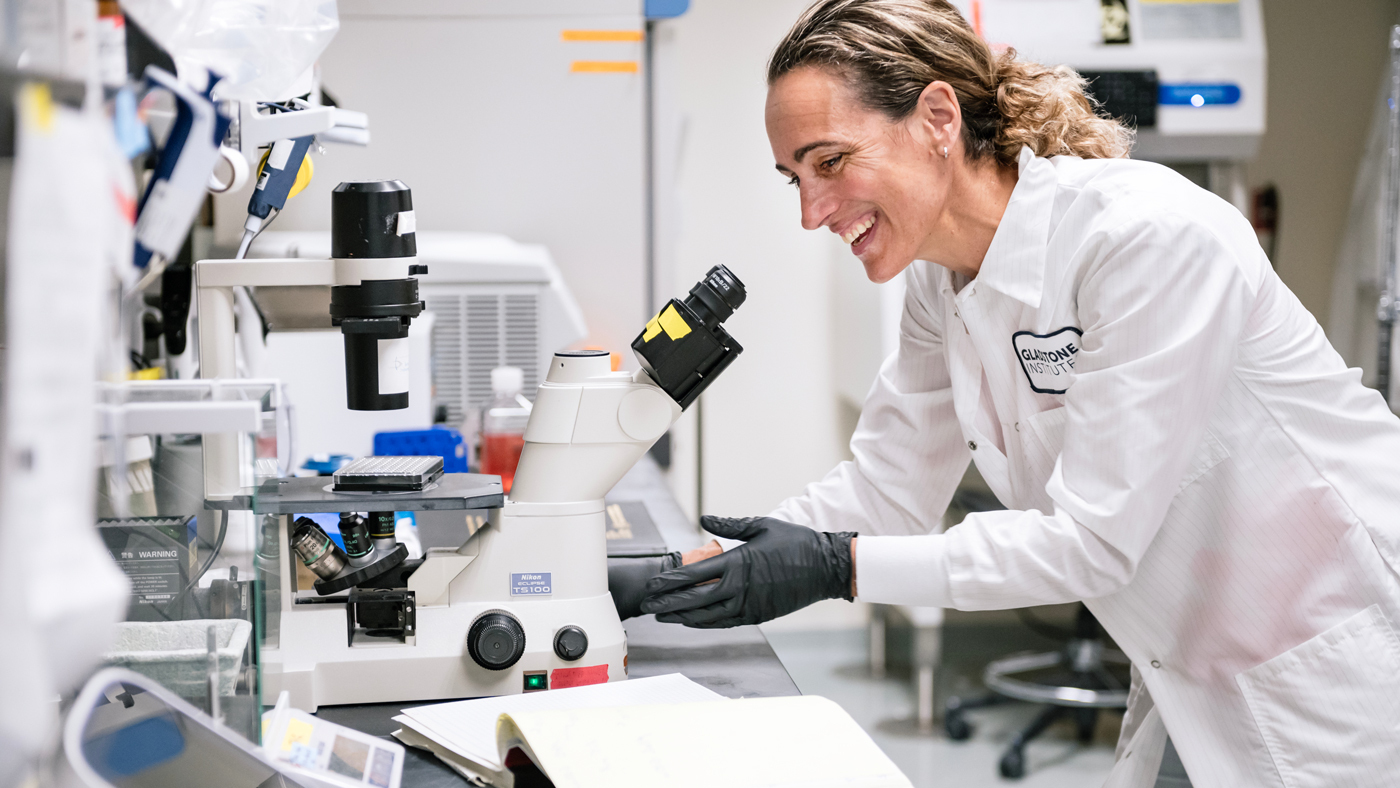Julia Kaye, PhD, uses innovative technologies to investigate questions in neurodegenerative diseases, such as amyotrophic lateral sclerosis (ALS), Huntington’s disease, and Parkinson’s disease. She is an expert in induced pluripotent stem cell (iPSC) technology, specifically using patient-derived cells to produce neurons and investigate disease mechanisms. She subjects these human neuron models to an imaging approach called robotic microscopy in order to unravel how cells from patients with neurodegenerative diseases grow, behave, and survive differently from cells from healthy patients. She also applies machine learning approaches to analyze the images acquired from robotic microscopy to develop sensitive platforms that capture disease signatures. Kaye also has extensive experience in whole genome sequence analysis, and is involved in very large studies using this approach to discover how a person’s genetic makeup can modify the onset or progression of conditions including ALS, Huntington’s disease, and Parkinson’s disease. Her goal is to reveal genes that are critical in disease progression with the hopes of finding potential therapeutic targets.
Disease Areas
Areas of Expertise

Lab Focus
Research Impact
Kaye’s research focuses on using induced pluripotent stem cell (iPSC)-based models of neurological conditions to discover basic disease mechanisms. She was a founding member of the Huntington’s Disease iPSC Consortium and involved in generating some of the first patient-derived lines available to the research community. By applying longitudinal robotic microscopy to those models, she discovered disease-relevant phenotypes and provided insight into Huntington’s disease pathophysiology. Kaye has subsequently expanded this approach to investigate other neurodegenerative conditions including ALS and Parkinson’s disease. She has also used whole genome sequence analysis of family-based studies to discover novel genetic drivers and modifiers of neurodegeneration. Together, Kaye’s work is changing the understanding of the molecular drivers of neurodegenerative diseases, and is helping establish platforms that will revolutionize how we discover therapeutic targets and screen for novel drug candidates for these devastating conditions.
Professional Titles
Scientific Program Leader III/Research Investigator, Gladstone Institutes
Bio
Julia Kaye, PhD, is a research investigator at Gladstone Institutes. She initially joined Gladstone as a postdoctoral scholar in 2009 to investigate stem cell models of neurological disease in the laboratory of Steve Finkbeiner, MD, PhD. She earned her PhD in cell and developmental biology from the University of California, Davis, where her work established paradigms of translational regulation and learned memory in C. elegans.
Kaye’s research has revealed important insights in the basic mechanisms of Huntington’s disease and amyotrophic lateral sclerosis (ALS). She has also been involved in multiple large consortium efforts and has helped lead collaborations with industry, foundations, and NIH-funded initiatives focused on understanding disease biology and discovering therapeutic targets.
How Did You Get Your Start in Science?
I got the scientific “bug” when I began using live cell imaging of chromatin in budding yeast in David Toczyski’s lab. I contributed to uncovering a novel mechanism involved in DNA double–stranded break repair that gives rise to the loss of heterozygosity in tumorigenesis. I was dazzled by the power of microscopy, and have since used it during every stage in my career to study how cells behave and unravel the pathophysiology of disease.
Honors and Awards
2017–2018 Award of Excellence, Gladstone Institutes
2010–2013 Postdoctoral Fellowship, California Institute of Regenerative Medicine
2007–2008 Floyd and Mary Schwall Dissertation Fellowship Award, University of California, Davis
2006–2009 Molecular and Cellular Biology Award, University of California, Davis
Publications
Contact
Julia Kaye
Email
415.734.2535
Kelley Nelson
Administrative Program Manager
415.734.2509
Email

